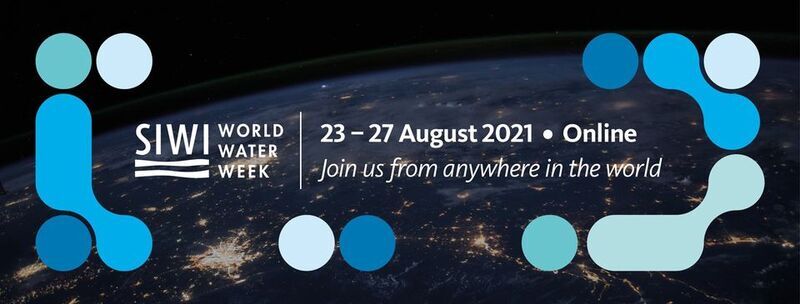
$50bn SDG-targeted investment proposals at SDG Investment Fair
Over 100 SDG-aligned projects with a total investment scope of $ 50 billion have been presented during the ...

The United Nations Environment Program (UNEP) will issue three reports at the World Water Week, an annual event that addresses the planet’s major water issues. It is due to take place online on August 23 through 27 under the theme Building Resilience Faster.
The reports stress the need to accelerate water quality monitoring through financing, capacity-building and data collection.
The United Nations has launched the International Decade for Action on Water for Sustainable Development, 2018-2028 and the UN-Water SDG 6 Global Acceleration Framework to speed efforts towards meeting water-related challenges.
With that has come more awareness about the pivotal role of water quality data in sustainable development.
“The right to information about the water quality that supports our health, livelihoods and ecosystems should not be seen as a luxury but as a basic necessity,” Kilian Christ, UNEP water quality expert, said.
Water quality is one of the three water indicators in Sustainable Development Goal 6 for which UNEP is the custodian. The organization is responsible for evaluating progress on achieving these targets by 2030, and its latest reports echo the Secretary-General’s message – the world is way off target.
The World Water Week 2021 will address one of the most important challenges facing mankind; namely the climate crisis. Concerned populations and political leaders world-wide, driven by a strong call from the younger generation, are demanding that the data and information provided by scientists are listened to, and that there is a political agenda that recognizes the climate change crisis as the single biggest threat to the world. The World Water Week 2021 contributes by focusing on the role of water and on turning climate risks into engagement.
The climate crisis has sharply accentuated the need to transition to truly resilient systems and societies; and highlighted the significant risk to water and development. To accelerate action and build resilience faster, there is a need to a strong focus on concrete examples and cases; what worked, what did not work, and what did we learn? The Covid crisis offers important lessons since building societies that value water and are resilient to pandemics has stark similarities with building resilience to climate change.
Climate change puts disproportionate pressure on the already vulnerable people, in much the same way as they have suffered from the Covid-19 pandemic. Building back better necessitates strengthening resilience to multiple crises and recognizing that water is frequently the stress multiplier. It is essential to build trust, spur innovation, mobilize resources and, above all, to value water.
There is a need to discuss how for example nature-based solutions can help address water and sanitation, which approaches are needed to improve wellbeing for vulnerable women and children and how we can strengthen resilience through financial mechanisms and/or partnerships.
Another priority, so far largely unexplored, should be facilitating synergies between climate change mitigation and adaptation. Management and governance of agriculture, forestry, energy production and water require a more integrated response. The impact of Covid-19 and the ongoing climate crisis have demonstrated how vulnerable urban water management systems are and how they affect the livelihoods and health of urban dwellers, especially in low-income settlements. Utilities face the challenge of providing water supply for all, while ensuring full cost-recovery and enhancing their resilience capacity.
Climate, ecosystems, society, and economies interact dynamically and water is often the connector. Embracing multiple water values across sectors and boundaries is vital for responding to shared risks including climate change and the economic recession triggered by Covid-19. Resilience can be enhanced by the use of data and information, ground-truthing, governance, and justice.
The World Water Week 2021 will focus on innovation and science towards building a resilient future, illustrated by examples and ideas. There is no excuse for inaction; enough facts, solutions and experiences are available and taking action is now an urgent matter.
Over 100 SDG-aligned projects with a total investment scope of $ 50 billion have been presented during the ...
Global electric car sales are set to hit around 17 million by the end of ...
Ericsson Canada marked the Earth Day by joining the Environment and Climate Change Canada’s (ECCC) Net-Zero ...


اترك تعليقا